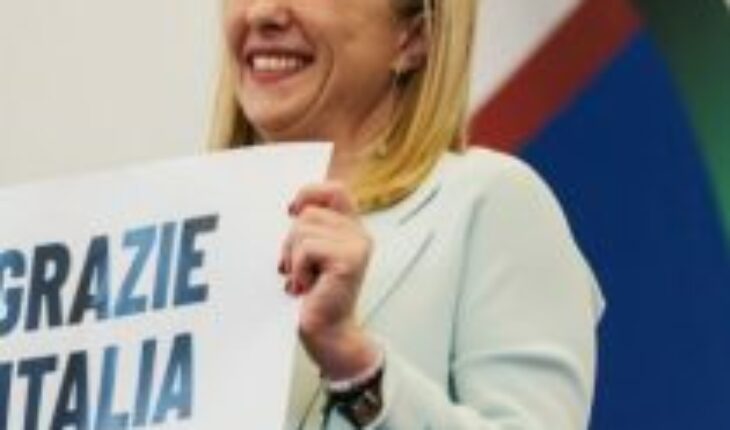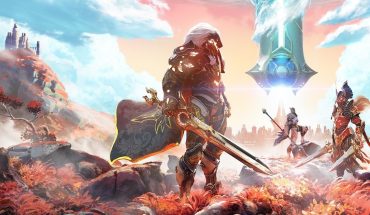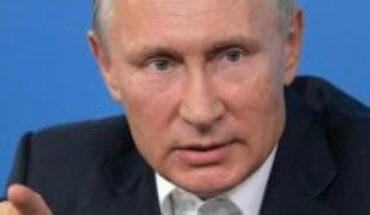After World War II, Germany carried out a process of “denazification” and a painful reckoning with its past. In Italy, however, it was decided look the other way.
At that time, the Italian Communist Party was the largest in all of Western Europe and the Allies, immersed in the dynamics of the Cold war, had one main goal: that the Communists would not come to power.
Fearing that the purges of former fascists could generate instability, the Allied powers turned a blind eye to the creation of new parties heirs to “Il Duce” and its ideas. Not only that, many fascist symbols and monuments remained – and continue – to be presents on italian streets, like the fascios that still adorn many of Rome’s manhole covers.
This is how it emerged in 1946 Italian Social Movement (MSI), founded by Giorgio Almirante, who had been chief of staff of the last fascist propaganda ministry.
Giorgia Meloni has never hidden her admiration for Almirante. In 2018, she herself disseminated a photomontage that she titled “From Giorgio to Giorgia”, in which they present themselves side by side with identical slogans: “We can look you in the eye.” In 2020, on the 32nd anniversary of her death, the now winner of the elections in Italy paid tribute to Almirante on Twitter with these words: “A great man, a great politician, a patriot.”
With the fall of the communist bloc, new right-wing parties emerged. One of them, Forza Italia, led by billionaire Silvio Berlusconi, included in its governing coalition in 1994 the MSI, then led by Gianfranco Fini. Post-fascism entered the government, and in the eyes of Italians, argues Luciano Cheles of the University of Grenoble, “gave it respectability.”
Gianfranco Fini was the first post-fascist leader to enter a government in Italy.
The party was renamed the National Alliance and a young Giorgia Meloni, who at the age of 15 had been a member of the MSI, became the leader of its youth.
Brothers of Italy is born from this breeding ground. “Many postulates have changed, some aspects have changed, although they are, of course, a right-wing party that has its roots in the post-fascist movement,” says Lorenzo Pregliasco, professor of Political Science at the University of Bologna.
The origins of the party, Cheles argues, are closely connected with the neo-fascist parties, but brothers of Italy and Giorgia Meloni find themselves with a dilemma: “on the one hand, they want to present a respectable image, of moderation and modernity, and therefore hasn said thatn cutting the umbilical cord with fascism. But, on the other hand, they do not want to lose a part of the electorate that believes that a modern form of fascism is still valid and acceptable.”
Those roots are present in all the symbology of the party.
The most obvious is the tricolor flame, the symbol of the Italian Social Movement that brothers of Italy have maintained. A flame that, by the way, also adopted the National Front in France – although with the colors of the Gallic flag – and that, more stylized, retains the Marine Le Pen’s National Regroupment.
“But in their propaganda there are many more references to fascism, some more or less hidden because they are made to be understood by fascists and those who are familiar with its symbology,” explains Cheles, an expert in political iconography.
One of the examples that Cheles has found is the same anthem of the youth of the National Alliance, which Meloni directed for years: “it is about ‘Tomorrow belongs to me’, which is a song sung by a young Nazi in Bob Fosse’s film “Cabaret” (1972). It still remains a slogan that appears in much of Giorgia Meloni’s propaganda.”
Giorgio Almirante himself, whom Meloni admires so much, is another example: each new issue of the Brothers of Italy newsletter bears his photo, which is also on the formation’s website, reveals the expert.
Giorgio Almirante founded the Italian Social Movement, Italy’s first post-fascist party.
What are its postulates
Brothers of Italy has its roots in post-fascism, but what do you preserve about that philosophy?
Umberto Eco considered that fascism “had no essence” and that Mussolini had not had a particular philosophy: “he only had rhetoric.” Fascism, said the famous Italian semiologist, philosopher and writer in a speech in 1995, “was a confused totalitarianism, a collage of different political and philosophical ideas, a hive of contradictions.”
There was, therefore, no particular philosophy behind fascism, but “emotionally it was firmly fixed to certain archetypal foundations,” such as the cult of tradition, fear of difference, selective populism, or machismo.
Brothers of Italy preserve some of these cultural roots, as the Italian journalist Annalisa Camilli tells BBC Mundo: “They have a strong discourse against immigration and against women’s rights, they are against abortion and want increase the birth rate in Italy, which is the lowest in Europe. In this sense, they are very traditionalist, hence their motto, “God, homeland, family”.
However, Camilli points out, “they have emancipated themselves from that past. Now they are a modern far-right party, more similar to other parties such as Marine Le Pen’s National Regroupment, Vox in Spain or Viktor Orbán’s party in Hungary. They seek a consensus around certain pillars such as the fight against illegal immigration, the promotion of a national identity and policies to support the birth rate.”
There are still numerous fascist monuments in Italy, such as this obelisk dedicated to Benito Mussolini in Rome.
Like so many other far-right leaders, from Orbán to Donald Trump’s republicanism in the US, Meloni’s ideology lashes out at the “globalist left”, against the supposed “LGTBI lobbies”, talks about how “mass immigration” will end up replacing “lifelong” Italians, i.e. whites and Christians, in line with the theory of “great replacement” of the French polemicist Renaud Camus.
“Neo-fascism,” Cheles reflects, “does not necessarily wear black shirts. Fascism today has a more subtle form, it is a form of authoritarianism whose elements are summarized in not respecting differences or minorities, and which maintains intolerant attitudes towards certain groups of people.”
Where neo-fascism feeds
In a country like Italy, Says Camilli, “fascism is endemic. Somehow, 100 years later, the witnesses have died and the memory that remains is not strong enough to prevent it.”
The electoral base, moreover, has become much more liquid. And, if the Italians have shown anything in recent years, it is that they always vote for change.
Successive governments have generated a disaffection among citizens and the populism it seems to be here to stay. “The 5-Star Movement has already prepared this ground by ensuring that there were no differences between the left and the right, that everything was corruption,” says the journalist of the weekly “Internazionale”.
That discourse of indignados against caste and against the elites, against the traditional parties and the clientelist politics of which many Italians are fed up, the same one that the populists of the 5-Star Movement championed, has now been picked up by Giorgia Meloni and Brothers of Italy.
The far-right coalition has been nourished by “the working classes that have lost their savings to inflation, and the middle classes that are becoming increasingly impoverished and have promised them a ‘new era’,” says Camilli. 100 years ago, fascism also promised “a new era”, a new beginning.
How it affects Europe
The rise of far-right parties across Europe, such as the Sweden Democrats, Vox in Spain, Law and Justice in Poland or Orbán’s Hungary, of which the European Parliament recently declared that it cannot be considered a full democracy, have the same root, according to Cheles: increased immigration.
Viktor Orbán is the great European reference of Giorgia Meloni.
“These neo-fascist ideas have been introduced through these types of arguments, which say that Italy or other countries cannot afford to have so many foreigners,” says the academic.
In Brussels, although the European Commission assures that it will work with any government that comes out of the polls, the concern is palpable.
Both brothers of Italy and La Liga, Matteo Salvini’s party that is part of the far-right coalition, have carried out strong Eurosceptic rhetoric, albeit with differences.
In recent months, Meloni moderated his speech. He stressed that he does not want Italy to leave either the European Union or organizations such as NATO. During the Ukrainian war, the leader supported the decision of Mario Draghi’s government to send weapons to Kiev.
The position of its coalition partners, however, clashes head-on with that of Brussels. Salvini has a close relationship with Russia and his party is under suspicion of having received funding from Moscow. The third coalition partner, Silvio Berlusconi, also a close friend of Putin’s, recently justified Russia’s invasion of Ukraine.
But, beyond the issue of war, what really worries in Brussels is the possibility that Italy, the founding country of the European Union and its third economy, will become another Hungary or Poland that puts their core values are at risk.
“There are concerns at the international level,” acknowledges Pregliasco, who also directs the digital data journalism magazine “YouTrend,” “but I believe that Italian democracy is stronger than it seems and, of course, stronger than it was in 1922.”





